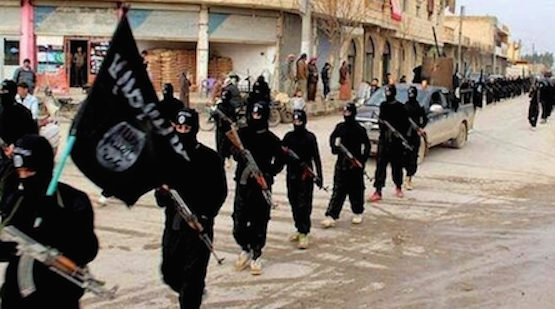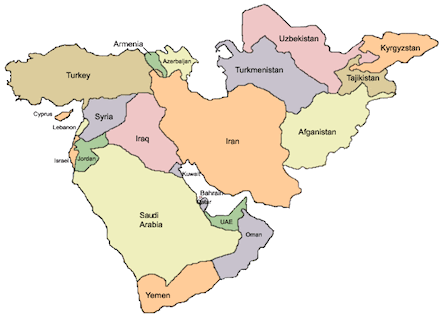 What’s the real value of getting Middle Eastern countries to help to fight Isis?
What’s the real value of getting Middle Eastern countries to help to fight Isis?
That’s the obvious question now that Secretary of State John Kerry says the USA has 40 nations that have agreed to contribute to the fight against ISIS.
And while Saudi Arabia, Egypt, Iraq, Jordan and Lebanon have agreed to give support, the question is what type of support and how forceful will it be?
The two main things they are offering to do is to stop the flow of foreign fighters and funding to ISIS.
I don’t know if I’m the only one who noticed this but by Saudi Arabia saying they will stop that funding of ISIS, is tantamount to their finally admitting publicly that they’ve been funding some of these radical Islamic groups all along.
Wow, what an admission!
 Secondly, I don’t know how much help Egypt and Lebanon can really provide because of the civil unrest existing in those countries now. So it really boils down to that old saying, “You have to clean up your own kitchen before you can help somebody else clean up theirs.”
Secondly, I don’t know how much help Egypt and Lebanon can really provide because of the civil unrest existing in those countries now. So it really boils down to that old saying, “You have to clean up your own kitchen before you can help somebody else clean up theirs.”
However if Iraq’s newly formed government is made up of Shiites and Suunis with each having some power, this should stabilize the situation and maybe filter down to the soldiers on the ground who will now start fighting ISIS instead of running from them.
Does this mean we’re fighting for the hearts and minds like we did in Vietnam?
Quote of the Day: “The biggest hurdle is figuring out who your friends are. Your real friends.”
Eleanor Mondale.
Calvin Sense is a prominent African American businessman who chooses not to reveal his identity.










Good Lord. What a mess.
Hearne – Are you looking to hire a copy editor? This was unreadable.
“Calvin Sense: Can Allies Insure a Stable Middle East?”
I suppose they could, but the monthly rates would be sky high.
I guess now we know why he chooses not to reveal his identity.
Since you’re ‘new’ to blogging (not to mention being factually clueless) yet show no intention of fading off into your own embarrassment, let me at least point out the basics:
America’s long term strategy for the Middle East –think 60 years or more –has been simple: grant the players within the region the latitude to vie against one another, slotting in a strongman to do our bidding whenever possible. This results in an area too bsu, too inward-reacting to plan anything dangerous to the Unites States. Also, it means the only time America needs ever intervene (minimally, quickly and using a deft touch rather than their trusty truncheon) is when the players expand their animosities. The Iran/Iraq War leaps to mind as a perfect example – that idiocy so occupied those nations and the ME that America nodded off, only to awake when Iraq invaded Kuwait. And we were in and out there so fast it barely seemed like a war – great strategy and even better on-the-ground tactics.
Nothing of consequence vis-à-vis America’s long term strategy has changed since then; we’re still looking at enforcing the same paradigm in Iraq and Syria. And, truth be told, we’re entering too early: we should have laid back and let Turkey, Iran and the Saudis try to handle the sectarian mess. But the Seven Sisters ( or the current entity that morphed out of that octopus) are fearful that the two nations have ceased to act as such and therefore the oil oligarchies could lose control over the multi-billion dollar oil fields they feel they by divine right own.
Therefore Turkey, Iran and Saudi Arabia will sit back and watch us spin our wheels, treasure and young lives; they may “help”, or they may not so subtly thwart us. But with the US ‘leading’, they feel no compunction to handle their own neighborhood gang problem.
With the primer done, let’s return to your question: can allies insure a stable Middle East?
The answer, unequivocally, is no. The only result from another extended American stay in the Middle East is a continuation of the radicalization of both Sunni and Shiite that started during George “I’ve A Really Small Penis” Bush the Lesser’s war and continues to this writing.
It’s poor strategy egged on by a lack of will to resist political pressure.
As for the tactics involved?
Can you say Arc Light?
Good synopsis Nick. An accurate look back and most likely a perceptive look forward.
Just my opinion, but for the most part, dead on the money.
That’s schooling him, Nick!
Rather than countries, the Middle East is made up of Quarrels With Borders. The Great White Fathers again knowing what is best for their Brown Bretheren despite having no understanding of their Brown Bretheren culture. Misunderstanding the situation and supporting tyrants since WWI.
Nice overview, Nick.
lets forget the keystone pipeline…keep that oil here…drill in west texas or whereever
they’re finding millions of barrels of oil ……keep the oil here by law…
and lets tell the arabs to settle their own problems.
Not exactly a free market idea, Harley but…
At some point – given the finite nature of our critical national resources – it may make sense to do something like that in the long term interest of the country (as opposed to the quarterly earnings of however many stockholders).